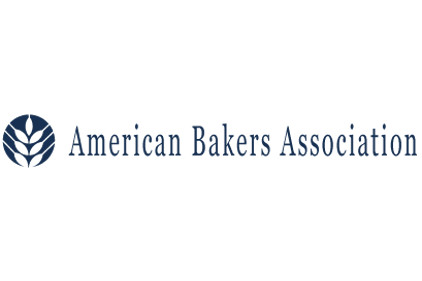SF&WB: As the incoming chairman of the ABA, what are your top priorities for 2014 and beyond? Also, how long have you been on the executive committee at the ABA?

|
RS: Being named chairman of the ABA is a great honor, and I plan to work very hard, along with everyone at ABA, to see that our industry continues to thrive. I have been involved with the ABA since 2005 and have been a member of its board of directors since 2006. Through education, facilitation, outreach and other forms of leadership, the ABA can affect change in economic, regulatory, cultural and political spheres. All of these forces, along with natural market forces, shape our industry in important ways.
While the ABA executive committee and board of directors sets its annual agenda, each incoming chairman sets a number of focus areas. In keeping with that tradition, and in my concerns for our industry, I would like to place special emphasis on future leadership development, industry education and membership growth. Here are a few words about each of those areas:
• The long-term viability of our industry can only be as good as its future leaders. Each and every member of ABA has a responsibility to identify, mentor and develop tomorrow’s leaders. The ABA already does an excellent job in this area, and it is one I will continue to focus on and shape during my term.
• There is a tremendous amount of misinformation regarding our industry and the wholesome products we produce. Educating and informing the marketplace and thought leaders, including political, business and media concerns, is essential. When consumers, legislators and others have the right information, they can make the best decisions for themselves, their families and their communities. ABA, in partnership with the Grain Foods Foundation (GFF), plays an essential role in educating policy influencers and consumers regarding the healthful benefits of our products.
The value that ABA brings to members is out of all proportion to the dues each member pays. Even the largest global multinational companies couldn’t reproduce the scope and reach of ABA. It’s essential that we reach out to bakers, suppliers and all other entities of all sizes that rely on the health of our industry. The growth of our membership base depends on our scope and effectiveness. Communicating the value of ABA membership to the widest relevant audience will be one of my key objectives. The ABA needs full industry support, if it is to continue to represent the needs and issues of the baking industry before Congress and government leaders that directly impact our bottom line.
SF&WB: How can you bring in new members and get current members more involved?
RS: The ABA membership will be one of the three focus points during my term as chairman. At the ABA annual convention this year in Phoenix, I deputized the entire audience. Each member in attendance, and those reading this article, are asked to reach out to peers, vendors, collaborators and anyone else who they believe benefits from ABA membership and the work it conducts on behalf of the industry. There will, of course be more formal ongoing recruitment campaigns, all with the goal of increasing ABA membership.
SF&WB: With the economy still not what it should be, how do you propose to shape key policy decisions that can potentially impact bakers and their budgets and bottom lines?
RS: It begins with education. It’s essential that leaders in the political sphere understand the value and vital role our industry serves. I defy anyone to find a community where a bakery, a bakery-related business and businesses and individuals doesn’t benefit from those businesses. Every member of Congress has a stake in the baking industry and seeing that our industry remains healthy. We literally feed the nation. The baking industry generates more than $102 billion in economic activity annually and employs more than 700,000 highly skilled people. A vibrant baking industry is essential to economic well-being, as well as quality of life for citizens.
By educating, informing and communicating with political leaders at all levels, the ABA can influence policy direction addressing unintended consequences that would negatively impact the industry as well as consumers. Our messages to policymakers can assist our industry to thrive regardless of the economic climate. This critical dialogue is good for our industry and the nation.
SF&WB: How critical is it for ABA to have a voice in Washington? And why?
RS: Even people in the industry would be shocked at the size of the baking industry’s economic footprint—it’s huge. The scope of economic activity from field to fork is a sizable chunk of the U.S. gross domestic product (GDP). The ABA is unique in providing one focal point for all of those concerns. Without the ABA, there would be no collective voice in support of the millions— and I literally do mean millions—of people we serve, whose economic livelihood depends upon this industry.
Even more important, the ABA provides a unified voice for concerns that keep the products we produce affordable and available to everyone. Policies that jeopardize this don’t just turn an industry, they hurt real people everywhere. The ABA plays a vital role in keeping our policymakers informed and in shaping legislation that is good for our industry and good for consumers.
SF&WB: What issues and bills are you especially concerned with and why?
RS: The current administration has stepped up the pace with regulatory proposals to push through its priorities. The ABA has been very busy with a large number of Food and Drug Administration (FDA) proposals to implement regulations related to the Food Safety Modernization Act (FSMA) as well as nutrition-related proposals, such as the recent ones addressing revisions to both the nutrition facts panel and serving sizes. FDA’s notice to revoke the Generally Recognized as Safe (GRAS) status for partially hydrogenated oils (PHOs), including trans-fat, if finalized, has the potential to be very impactful for the baking industry.
On the legislative side, the ABA is also working hard to ensure that the industry’s voice is heard on Capitol Hill regarding oversight opportunities on numerous workforce issues impacting the industry, including the National Labor Relations Board’s detrimental “ambush” election proposal. This new rule would not only shorten the election timeframe to as few as 10 days, it would also require businesses to hand over all employee contact information, including personal email addresses, cell phone numbers, home addresses and even work schedules. The ABA believes this proposal is nothing more than a solution in search of a problem.
SF&WB: What about FDA’s new Food Safety Modernization Act?
RS: There will be 52 new regulations related to the new FSMA law. Not all of the new regulations will impact bakers, but a good number will, and they will impact the processes in our plants and recordkeeping. To date, the ABA has weighed in on cGMPs (Current Good Manufacturing Practices), hazard analysis and preventive controls for human food, foreign supplier verification, third-party certification, draft guidance on facility registration and use of photography in plants.
Currently, we are also reviewing the definition for high-risk foods, intentional adulteration, safe food transportation and cGMPs, hazard analysis and preventive controls for animal food and feed (bakery waste that is sent to animal farms). The ABA led the food industry in a critical effort to justify an exemption for additional preventive control requirements for ambient temperature depots and warehouses and limited requirements for temperature-controlled warehouses. As a result of these proactive efforts, the exemption was included in the human food preventive control proposal.
SF&WB: What about declining bread/roll sales? What measures do you feel should be taken to counter this situation?
RS: A key ABA role is defending our industry from the attacks of pseudoscience and misinformation. Consumer preference always evolves, but when it’s driven by misinformation, it can be harmful to consumers. Making sure accurate information is at least as plentiful as the pseudoscience and gossip is a worthy goal for the ABA and not an insignificant one. Fads will come and go, but bread has been a steady, nutritious staple, feeding the world since the dawn of civilization. I do not see that changing.
SF&WB: How did you like this year’s ABA convention? Can you tell us what issues or topics you want to pursue for next year’s meeting?
RS: The convention was a huge success. The team of professionals that run the ABA always do an outstanding job and this year they certainly did not disappoint. We had approximately 450 members and guests attending, including more than 45 new attendees. There is a great balance at the ABA Convention between formal meetings and unstructured networking time. It’s a chance for new attendees and seasoned bakery executives to make new business contacts and build meaningful relationships. To answer your question, I really enjoyed it.
I already mentioned my three initiatives for the year, so I’m sure I’ll be reporting on the progress in these areas next year. Beyond that, the ABA team is just beginning to shape next year’s meeting. It’s a long-term, detailed process to produce an event of maximum value. Come join us next year in Florida; it will be another great meeting.
SF&WB: What are your thoughts about clean labels and where are they heading?
RS: Bakers are responsive to consumers’ preferences and desires. This holds true with the clean-label issue. The current trend is toward simple, clear and easy to understand labels.
SF&WB: How do you feel about genetically modified organisms (GMOs) and things like biotech wheat? What will be your stance going forward on these subjects?
RS: The ABA’s stance on biotech has been constant. As noted in the previous question, our industry wants to be responsive to the desires and preferences of our customers, and as such, we want to ensure that there is a choice for traditional products, as well as those that embrace new technologies that can utilize more sustainable practices that appeal to consumers. Our members also believe that a federal solution to voluntary biotech labeling would be beneficial to consumers, as well as industry, rather than a confusing patchwork of state-level regulations that could all have different requirements.
SF&WB: What about your feelings on the many new FSMA proposals and proposed taxes?
RS: As every business person knows, regulations have costs. Perhaps not taxes in the traditional sense, but they are mandatory expenses. The food safety and food quality record of the baking industry is unparalleled. This is a point of great pride for everyone in our industry, and we work hard every day to ensure it. The aim of the FSMA is admirable. The implementation, as well as the risk of over-regulation, could stifle innovation, restrict growth, raise prices and offer no new value to consumers. Any aspects of the implementation that we view as being over-regulation are areas that the ABA will seek to influence through its education and outreach.
With regard to user fees, the ABA has traditionally opposed these types of fees or taxes on businesses. For FSMA, the ABA advocates for appropriated funds from Congress to cover the costs for food-safety activities and FSMA implementation. The ABA has been active in reaching out to congressional appropriators to voice our concerns about this administration’s new budget request for both facility registration fees and user fees.
SF&WB: What other agendas will you have in the next two years that you would like to tackle?
RS: In the next two years, the ABA will continue to lead the efforts of the grain chain in responding to Health and Human Services/USDA’s development of the 2015 Dietary Guidelines for Americans. It’s critical for the grain-based organizations to work together to have a uniform response in providing new research and information on the health benefits of grain-based foods to the Dietary Guidelines Advisory Committee, which is tasked to make science-based revisions to the current guidelines. This is an important issue for our industry because these new recommendations will be the basis for any federally-mandated nutrition policy that occurs over the next five years.







